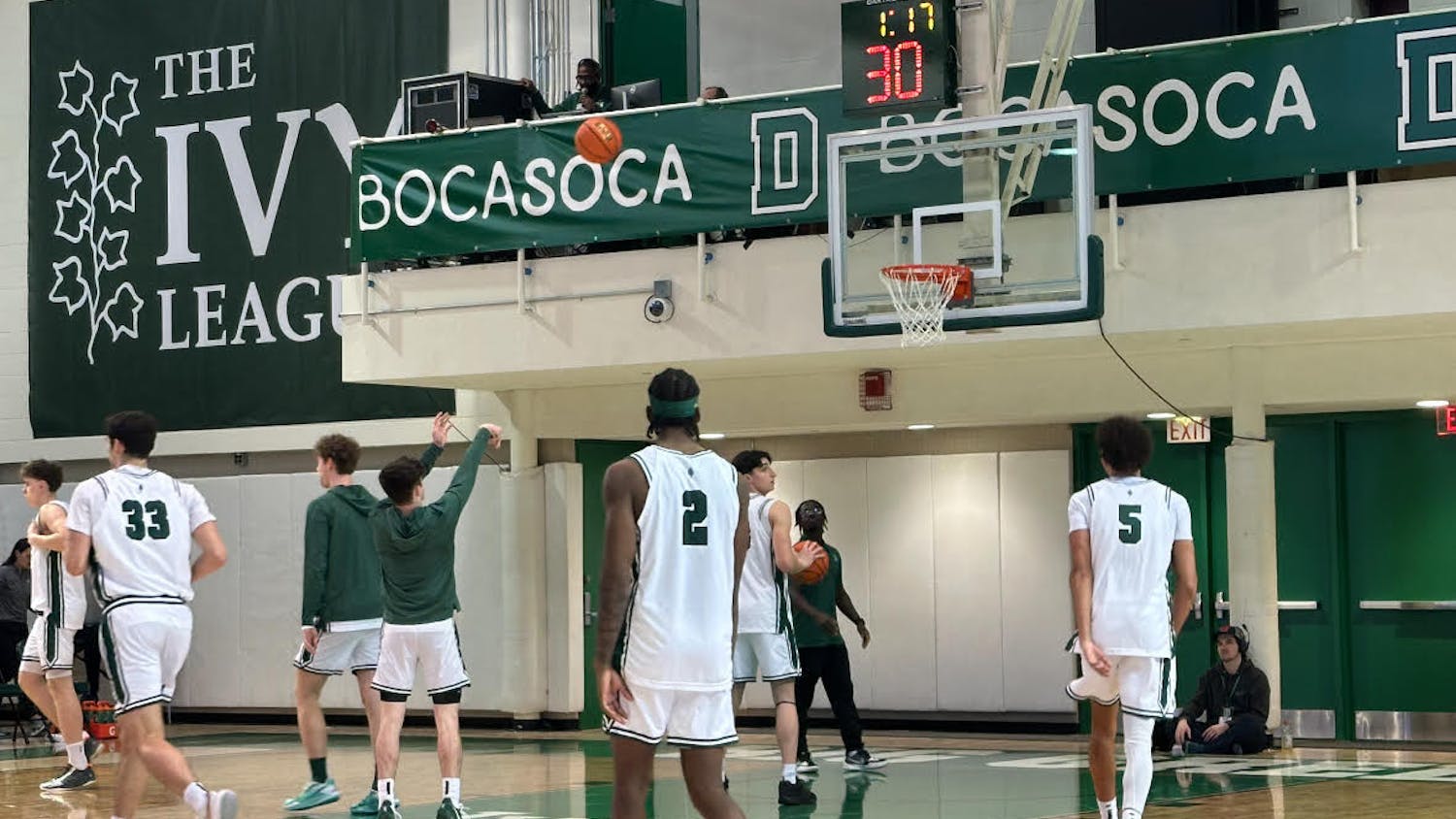Talk of impending budget cuts is reaching a Super Bowl-like fever pitch heading into this weekend's Board of Trustees meeting, and the open letter to College President Jim Yong Kim and the Board, submitted this week by 75 professors, once again brought the athletic department to the forefront of the discussion ("Faculty protest layoffs in letter," Jan. 26).
In the letter, the professors write, "The College could reconsider some of its athletic programs to determine whether any of them can be cut back without harming the overall mission of the Athletic Department or causing any layoffs."
And yet, looking at the mission of the Athletic Department, the first sentence is, "Dartmouth College and its Athletic Department are committed to providing an extraordinary variety of athletic opportunities that meet the talents, interests and needs of a broad range of individuals." It seems, then, that the professors in question are not asking the Board to respect the mission statement of the Athletic Department they're asking the Board to change the mission statement to reflect what they believe to be the relative unimportance of athletics at the College.
These professors, of course, are not the first to come up with the idea of saving money by scaling back athletics, or by finding alternative sources of funding for them. Don Mahler, a sports columnist for the Valley News, proposed in late December that some or even all of the "minor sports" at Dartmouth (that is, not football, hockey and basketball) take on the funding model that saved the swimming and diving program in 2002: private donors. He thinks that the College could continue to enjoy the benefits of its 34 varsity sports without footing the bill, instead putting their fates at the whim of each team's ability to scrape together $250,000 every year from its "Friends" donation program.
The only positive thing I can say about this plan is that at least Mahler recognizes that the teams shouldn't cease to exist. But how does he think Dartmouth will have any shot of attracting the top talent in the Ivy League when prospective athletes are being asked to commit four years to a team that barring the sustained generosity of its donors might not be around by the time that recruit returns from his DOC Trip? The short answer is that it will be very difficult, and probably even tougher for the coaches splitting their off-season time between recruiting and fundraising to save their own jobs.
The real value of athletics to Dartmouth is something I think that these 75 professors and even Mahler fail to recognize the gifted, multidimensional students who choose to attend Dartmouth because of its athletic opportunities.
Over the past three years, I have asked many student-athletes why they decided to come to the College, and the answer is always some variation of, "Dartmouth gave me the opportunity to play the sport that I love while getting a great education." But Dartmouth isn't the only place where this is possible, and if the College cuts a sport, it will lose the chance to bring exceptional student-athletes into its family. To use one obvious example, Nicholas Christman '08, the valedictorian of his class, was a starting midfielder for the soccer team do you think he would have come to Hanover if the College had cut varsity soccer in 2002? I don't.
The strength of Dartmouth as an institution relies not only on its ability to draw top-tier students, but also on its ability to recruit top-tier individuals. While not every varsity athlete becomes valedictorian, there are hundreds of students at the College who make contributions to the community that classic bookworms may not. Lose the sport, lose the students. Lose the students, lose the richness of the community. And yes, I understand that many athletes were recruited, and therefore may have been accepted to Dartmouth instead of someone "more qualified," but again, academic performance is not the only virtue. Besides, any detraction made by an underachieving athlete is surely overcompensated by the successes of, say, a Rhodes Scholar who would have gone to Brown, or Penn or Columbia if Dartmouth had cut his sport. Losing such students may not represent the End of Dartmouth, but if the goal here is to preserve the "Dartmouth Experience," then cutting sports isn't sending us in the right direction.
The current need for budget cuts becomes necessary at a time when judgments of value must be made. The group of 75 professors see the athletic department as an area that uses more of Dartmouth's budget than its value to the College. But cutting one varsity sport, even a "minor" one, would destroy a critical aspect of student life at Dartmouth.



